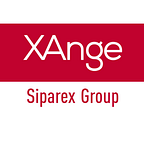The Global Mapping of French Disability Tech Startups
By: Manon Gazzotti and Dylan Amsellem
Disability tech innovation tells a story that’s as old as humanity, compassion and innovation themselves — and yet it is at the verge of a new revolution. Here’s why we’re so interested:
- This is tech for good at its best. Assistive technologies have the potential to change people’s lives in a way that few other “techs” can: helping people move around, gain independence and eventually claim a stronger place in society. A lot is said about tech needing to be more inclusive? Well, this is our chance.
- The reach is massive. Just in France, over 15% of the population suffers some form of disability. This means 12M people, including 800k with locomotor impairment and 1.5M with visual impairment*. These are just the direct figures. Add the ageing population, the families, helpers, and all the people surrounding them in schools & jobs, and you start getting the full picture.
The field of study is very wide. For this first mapping, we chose to focus on mobility and inclusion.
HOW TECH CAN HELP
Digital innovations:
- Mobile apps: many mobile applications were launched in the recent years, notably to help people make their way around cities and public buildings, such as IWheelShare or J’Accede. These apps have a “community” side that makes them very strong.
- Marketplaces: the leisure and travel sectors have startups that facilitate booking of adapted accommodation (Takahut) or activities (Activhandi). Others allow travelers to get help from volunteers for travel assistance (Moncopilot) and even to rent / exchange adapted cars around the country (Wheeliz).
- Services: multiple digital accessibility projects have emerged in the recent years, such as Koena, Aidodys, AMW, Facil’iti, enabling digital interfaces to be adapted to different types of disability — these initiatives strongly tend to be backed by public money and regulation.
Tech innovations:
- Robotics, a whole new field. Take Wandercraft, who’s on a mission to help people with locomotor disability walk and move around without crutches or a wheelchair thanks to its exoskeletons. They are a true technical prouesse… and XAnge is a proud investor since 2017!
- AI for inclusion: With Ava, for example, an app that translates group conversations into snapshots for people with hearing difficulties.
- Brain control: one of the most ambitious fields for the assistive tech market, and also the one with the largest potential applications (think gaming, industry, military, etc.). Brain techs create interfaces between the brain and an electronic device, such as a software or an exoskeleton, to make it directly controllable. See the exoskeletons developed by Clinatec, for example.
THERE ARE STILL MANY CHALLENGES
However exciting these innovations are, disability tech startups haven’t attracted a lot of VC money so far (Orcam first $1bn assistive tech company). Many challenges prevail, the first of which is product development. By definition, handicap is personal and often requires unique solutions to help the patient. Scalability is hard, hardware is expensive. For this reasons, the market tends to go toward service rather than product.
The business side is complex too. Because the commercial cycle of a disability tech startup often include multiple stakeholders (third party buyers, authorities, the medical community, institutions, the consumers themselves, etc.), it is hard for this companies to build an effective (and reliable) commercial strategy.
“Applicable to all” is a trend we see that could eventually kickstart the whole field. The idea here is to bet on innovations that will benefit people with disabilities as much as anyone else. The SMS is a great example. Did you know it was first launched to help the deaf communicate?
Please enjoy and share this mapping. It is still a work in progress, of course, just like the industry. If you have any ideas for companies that are missing or misplaced, please let us know here.
*source : https://www.ocirp.fr/actualites/les-chiffres-cles-du-handicap-en-france
